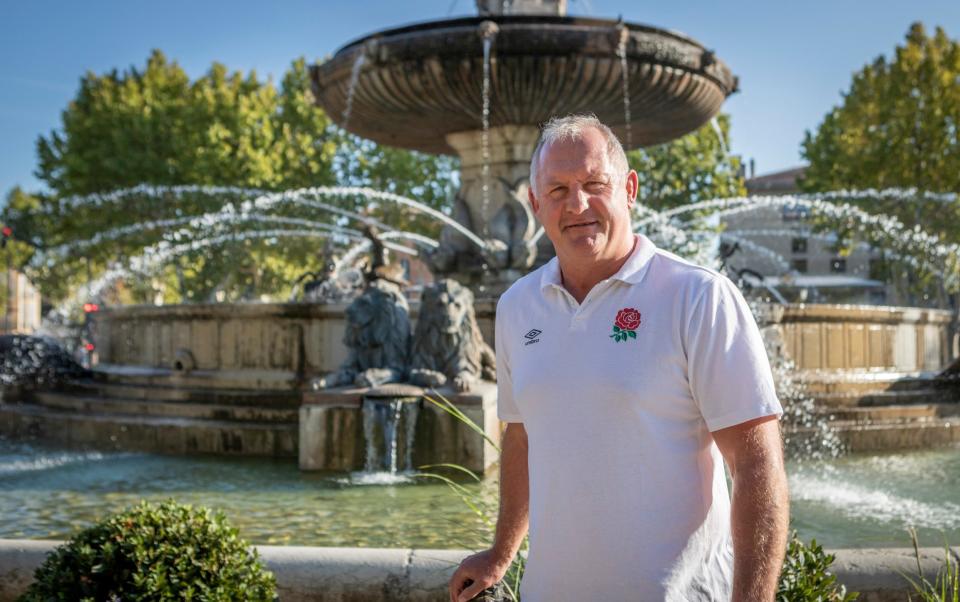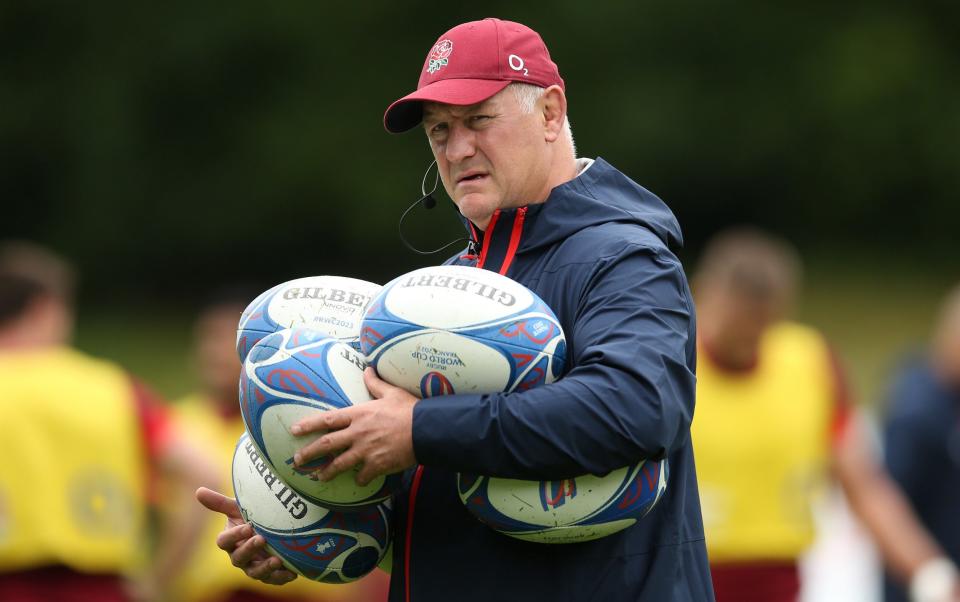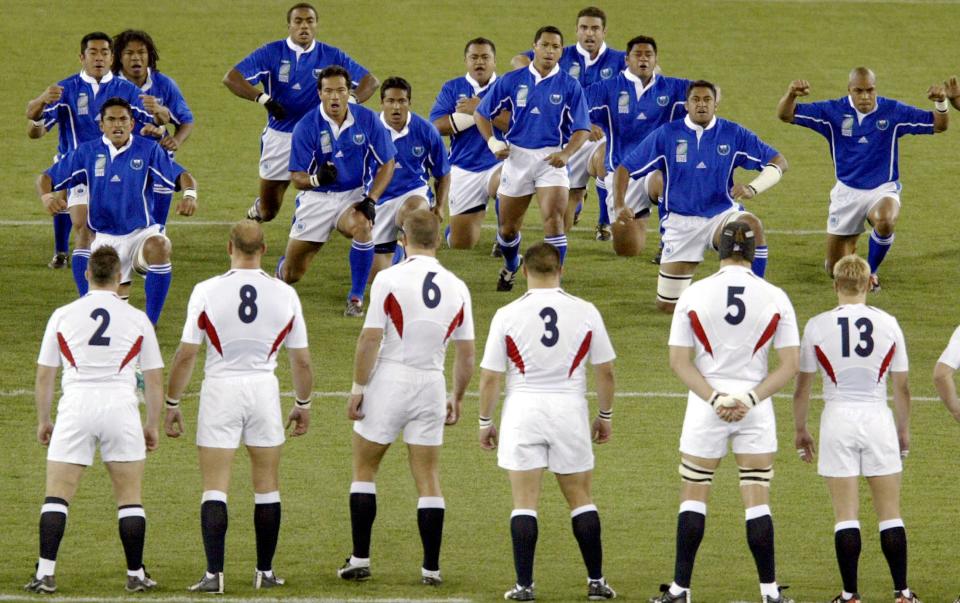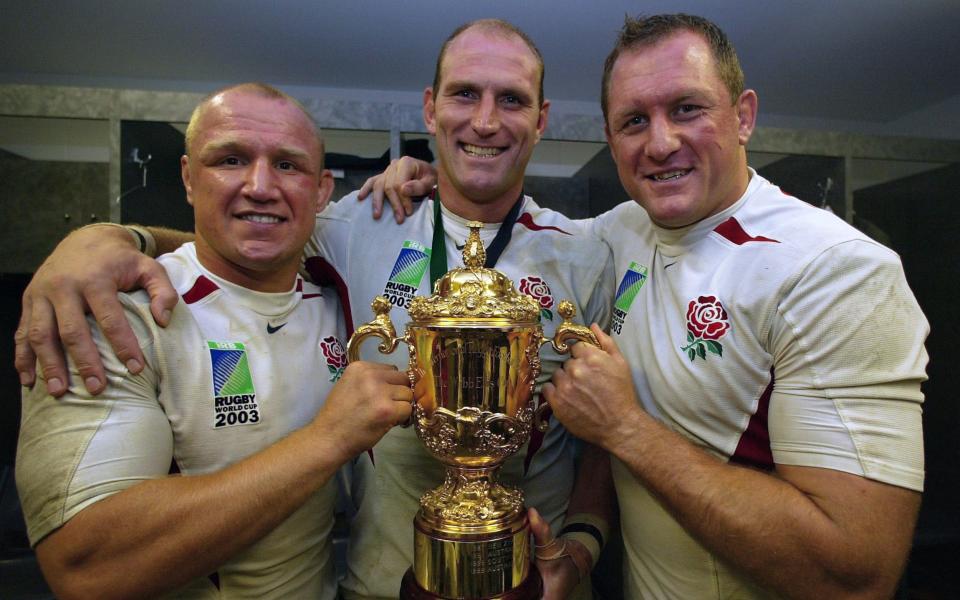Richard Hill interview: I see similarities in this England team to World Cup winners of 2003

Like English rugby’s own Clark Kent, Richard Hill disappeared anonymously into the toilets in a café in Aix-en-Provence and re-emerged wearing an England top.
His change of outfit was for the photo-shoot, taken in front of the beautiful Rotonde fountain in this picturesque university town that is the base for Steve Borthwick’s squad ahead of their quarter-final against Fiji in Marseille on Sunday.
It was a rare occurrence. Hill may have been a colossus of the back row in England’s 2003 World Cup winning side, but unlike some of his team-mates, has since preferred to keep a low profile.
Perhaps that should not be a surprise for the player who went by the nickname the ‘Silent Assassin’ during his 71 caps for England and five for the British and Irish Lions. French flanker Serge Betsen described him as a player who came “from the shadows, from the darkness”.
Now his unseen work is with the England squad, not the breakdown. In fact, in the eight years since he was appointed as England team manager in 2016, this is his first interview.

Still, seeing Hill pull on the red rose top again seemed to stir the veteran England supporters enjoying a quiet beer in the late afternoon sunshine.
The 50-year-old, who had attracted no attention as he walked into the café, rekindled warm memories that this England side already has a World Cup winner in their ranks, and he found himself standing for photographs.
I ask if being part of a key member of England’s management team at this World Cup in France has rekindled his own memories of that epoch-making campaign 20 years earlier.
Hill, the former Saracens flanker, reminds me that a hamstring injury he sustained on the eve of the 2003 campaign had ruled him out of the pool stage and the quarter-final victory against Wales.
Yet he admits that England’s narrow victory over Samoa last weekend brought back memories of when Sir Clive Woodward’s side survived a scare in their final pool match against the South Pacific island side when they trailed 22-20 with 17 minutes left before closing out 35-22 win.

“Twenty years on and it is not a new phenomenon that Samoa are a good team,” Hill tells Telegraph Sport. “There was a correlation between two teams who had to dig deep to find a way to win.
“You win that game, and you move on to the next and yes, there’s a huge excitement about playing in the quarter-final.
“The players are very much looking forward to playing against Fiji. You want to get to this stage and therefore the consequences are the players know the importance of selection and training has been pretty exciting this week.
“Every player wants to be in the team so there is going to be that natural joy for some and some deflation for others. But they’ve all stepped up to training. There has been a good edge, a competitive edge.
“The players have been preparing exceptionally well for the weekend. That’s all we care about at the moment, getting the Fiji game started and getting the foundations of a good performance from the start.
“We’ve got a phenomenal amount of experience within our squad, unbelievable. A large group of players that played in the 2019 final, and a lot of players that have played in significant European matches, and that type of experience does count.
“It is not the same, but I remember playing in a [Premiership] wildcard final, in May of 2003, the opportunity to play in winner-takes-all games builds your character, builds your experience, builds your ability to perform under pressure.”
Hill has a unique insight into the mindset of this England group, having seen their development first hand since their teenage years. He was first asked to be England team manager when former head coach Eddie Jones took charge in 2016, having previously joined the Rugby Football Union two years earlier to work as a consultant on their pathway programme, following on from a similar role with the Saracens academy.
The role of team manager has evolved from the early days of the Jones’ tenure – he is now seen by England head coach Steve Borthwick as a critical role in the management team, particularly in talent identification and development and will have an input into the new professional game partnership that aims to revolutionise the management of the national side with the awarding of new ‘hybrid’ contracts next year.

“An important part of the job is to get out and see these young players,” added Hill. “It is important for me if I was mentoring players to be seen whether they were playing for their Premiership club, their loan club, an age-grade team. I’ve had some interesting comments from parents over the years and players who say I see them more than their parents. But it was all part of trying to build those relationships to try and get the most out of the individual.”
His role has also been to try to improve relations between club and country in terms of access and the management of players. Encouragingly, during this World Cup campaign, some clubs have provided players to supplement numbers for training sessions, with Bath and Newcastle in particular eager to assist by sending young players into camp to gain experience.
“It’s imperative that in order to have a good England team, that we have people backing us and the clubs have been very supportive in that from everything I’m hearing. If we can get that relationship right, the partnership, then we’re a long way to making sure we keep improving things.”
With so many England players in this squad facing a do-or-die moment against Fiji on Sunday, I wonder what his favourite moment as a player was. His answer sheds a light on his ability to be a mentor as well as an inspiration.
“There is obviously that special moment after the final, but when you pick up bad knee injuries (he had two long-term ones and eventually required knee surgery) it is amazing how much joy your first run after four months out can bring to you. Even if it is just a gentle jog around the pitch in front of a huddle of players who are training and you hear a few whistles. When the ability to run is taken away from you when you are a professional sportsman, it is tough.”
And would a young Richard Hill still back himself to get into this England back row?
“I’d give it a crack,” he adds with a smile. “I might have to do a bit of sprint training.” And there it is again. Time has not diminished the competitive spirit of the ‘silent assassin’ that helped that drive England to a World Cup victory 20 years ago.

 Yahoo Sport
Yahoo Sport 





































